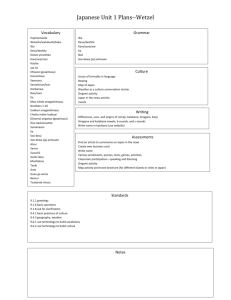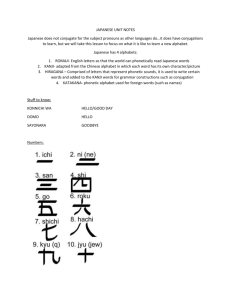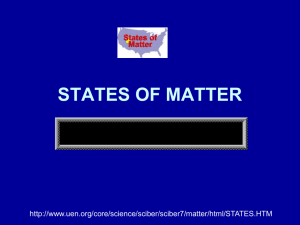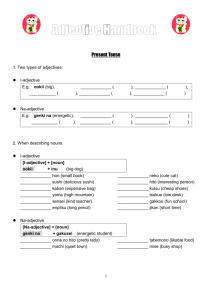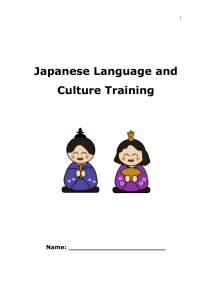Basic Japanese Sentence Structure
advertisement
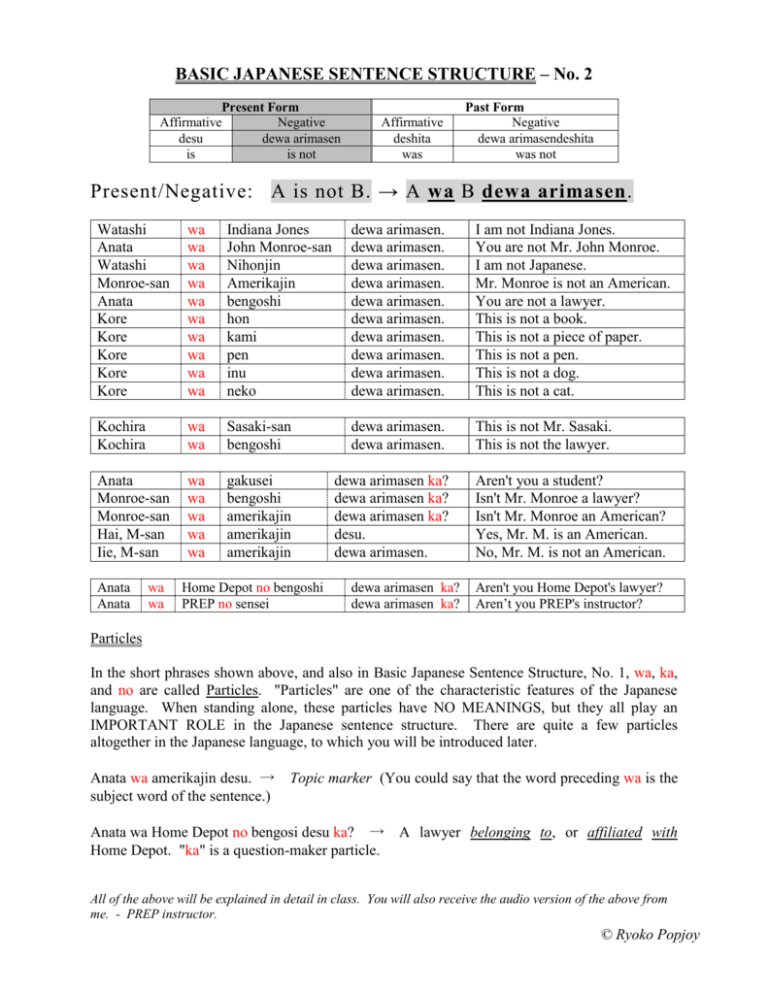
BASIC JAPANESE SENTENCE STRUCTURE – No. 2 Present Form Affirmative Negative desu dewa arimasen is is not Affirmative deshita was Past Form Negative dewa arimasendeshita was not Present/Negative: A is not B. → A wa B dewa arimasen. Watashi Anata Watashi Monroe-san Anata Kore Kore Kore Kore Kore wa wa wa wa wa wa wa wa wa wa Indiana Jones John Monroe-san Nihonjin Amerikajin bengoshi hon kami pen inu neko dewa arimasen. dewa arimasen. dewa arimasen. dewa arimasen. dewa arimasen. dewa arimasen. dewa arimasen. dewa arimasen. dewa arimasen. dewa arimasen. I am not Indiana Jones. You are not Mr. John Monroe. I am not Japanese. Mr. Monroe is not an American. You are not a lawyer. This is not a book. This is not a piece of paper. This is not a pen. This is not a dog. This is not a cat. Kochira Kochira wa wa Sasaki-san bengoshi dewa arimasen. dewa arimasen. This is not Mr. Sasaki. This is not the lawyer. Anata Monroe-san Monroe-san Hai, M-san Iie, M-san wa wa wa wa wa gakusei bengoshi amerikajin amerikajin amerikajin dewa arimasen ka? dewa arimasen ka? dewa arimasen ka? desu. dewa arimasen. Anata Anata wa wa Home Depot no bengoshi PREP no sensei dewa arimasen ka? dewa arimasen ka? Aren't you a student? Isn't Mr. Monroe a lawyer? Isn't Mr. Monroe an American? Yes, Mr. M. is an American. No, Mr. M. is not an American. Aren't you Home Depot's lawyer? Aren’t you PREP's instructor? Particles In the short phrases shown above, and also in Basic Japanese Sentence Structure, No. 1, wa, ka, and no are called Particles. "Particles" are one of the characteristic features of the Japanese language. When standing alone, these particles have NO MEANINGS, but they all play an IMPORTANT ROLE in the Japanese sentence structure. There are quite a few particles altogether in the Japanese language, to which you will be introduced later. Anata wa amerikajin desu. → subject word of the sentence.) Topic marker (You could say that the word preceding wa is the Anata wa Home Depot no bengosi desu ka? → A lawyer belonging to, or affiliated with Home Depot. "ka" is a question-maker particle. All of the above will be explained in detail in class. You will also receive the audio version of the above from me. - PREP instructor. © Ryoko Popjoy
